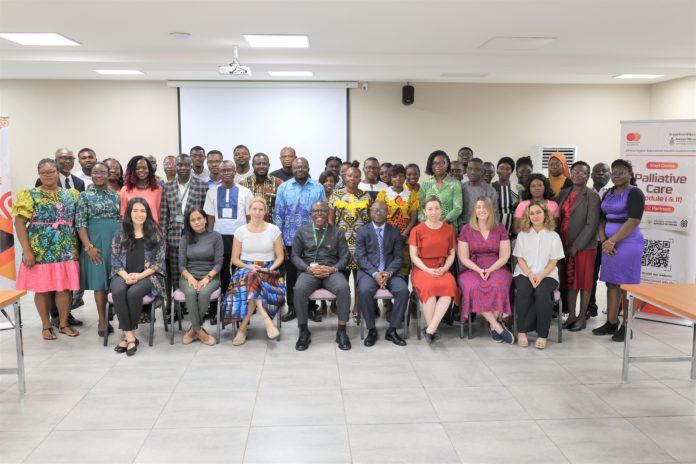Twenty-three primary health personnel across the country have been selected to participate in this year’s basic palliative healthcare workshop.
The course by the Africa Higher Education Health Collaborative in partnership with Mastercard Foundation is meant to build the capacity of beneficiaries to provide quality healthcare for patients with serious illnesses, such as cancer.
The workshop, which is in partnership with the Kwame Nkrumah University of Science and Technology, University of Toronto and the Ministry of Health, is facilitated by the Health Employment pillar of the Collaborative.
The Health Employment pillar led by Dr. Kofi Akohene Mensah aims to expand and improve current capacities to train primary healthcare workers.
After the course, Dr. Akohene Mensah expects beneficiaries to be innovative and share their experiences with colleagues.
“Please, once you go back, share with your other colleagues in your respective facilities and please start something in your facility,” he said.
Drawing inspiration from the co-creative essence of the Collaborative, the Principal Investigator of the Collaborative, Prof. Ellis Owusu-Dabo was hopeful of better health outcomes for Africa.
“In keeping to our shared commitment, building partnerships and co-creating programmes to maximize impact in Africa, I continue to implore the University of Toronto, KNUST, and all other partnership institutions to keep the flames of teamwork burning,” he said. “We need each other to maximize the need to impact Africa.”
A facilitator and Family Medicine Physician at the University of Health and Allied Sciences, Prof. Akye Essuman commended the Collaborative for the initiative and urged the collaborative to consider a short course in elderly care.
“I have a feeling that this project wouldn’t want to be left out in the care for the elderly,” he’s hopeful.
He also asked the Collaborative to form partnerships with key institutions for smooth translation of training into practice especially for the public sector.
“For those in the public sector, some rules and regulations, like the Rock of Gibraltar, never change and it becomes difficult to translate your skills to service integration at that level. And that’s something the project would have to look at by having some collaboration with those at that level,” he said.
The course lead and head of Department of Family and Community Medicine Division of Palliative Care, University of Toronto, Dr. Kirsten Wentlandt promised participants of a comprehensive course work.
The Africa Higher Education Health Collaborative in partnership with the Mastercard Foundation seeks to advance healthcare in Africa through three pillars: Health Employment, Health Entrepreneurship and Health Ecosystem.
The Health Entrepreneurship pillar aims to develop an entrepreneurial mindset and culture that supports entrepreneurs to create meaningful innovations and employment opportunities in the health sector.
The Health Ecosystem pillar also aims to train and prepare a new generation of talented professionals with the broad sets of skills required to drive equitable and inclusive growth.

